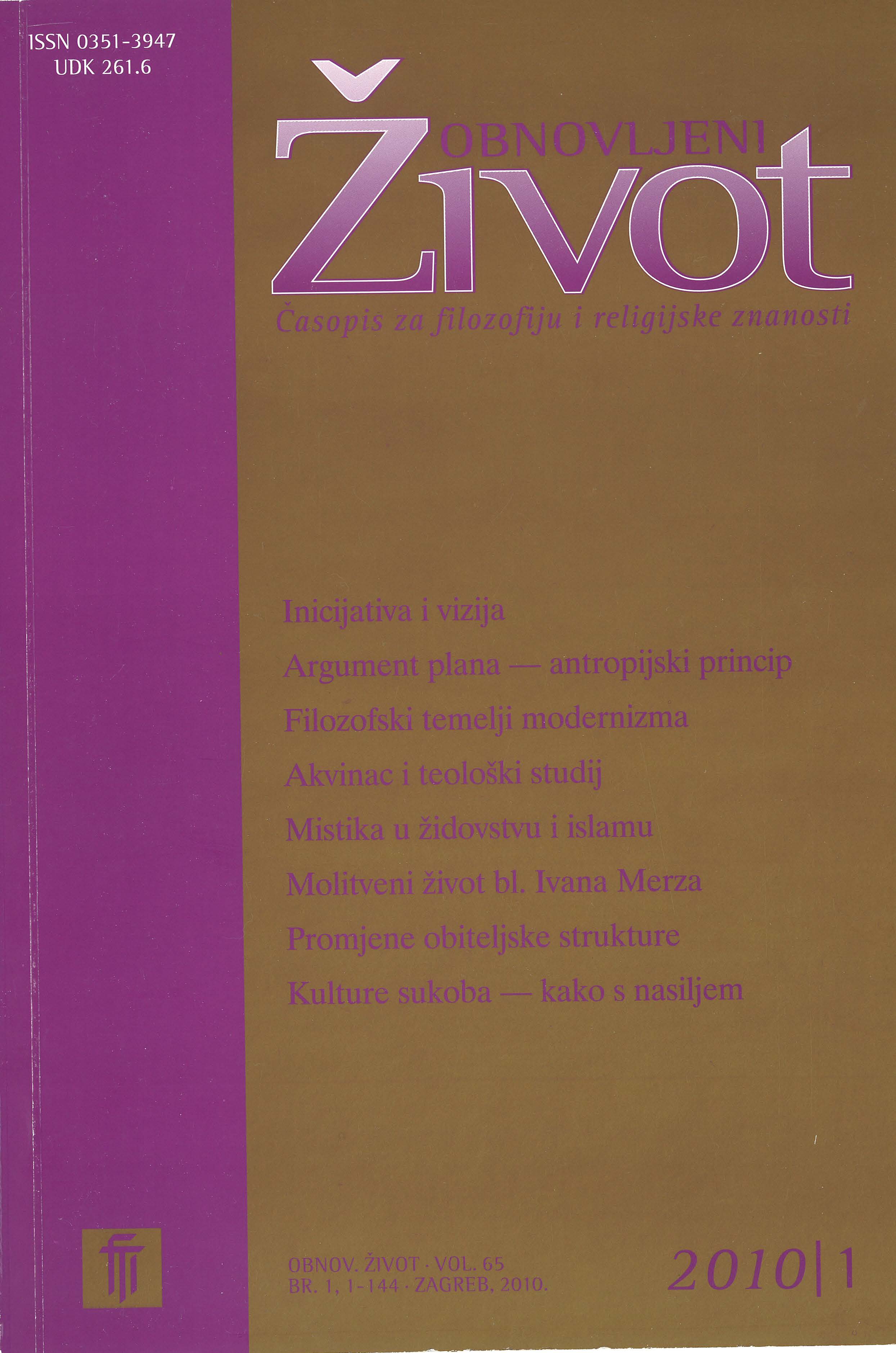The Catholic Church and Modernism
Keywords:
Modernism, liberalism, atheism, illuminism, rationalism, Church teachings, modernist theologiansAbstract
The aim of this article is to cast light upon the predicament of Catholic theology in the Modernist Period, and on the other hand, its renewal during the pontificates of Pius IX, Leon XIII and Pius X. It must be noted that this is one of the most difficult and most unfavourable times ever with respect to Catholic theology. In defense of her identity within the absolutist national state, the Catholic Church sought to deliver itself by undertaking all possible means to preserve her identity from the onslaught of new ideas coming to the fore in philosophy, politics, education and other social sciences during the Modernist Period. Overall cultural creativity of the time was characterized by social uniformity which was manifested in the predominating spirit of secularism, positivism and immanentism. Between the nineteenth and twentieth centuries, two opposing courses of direction prevailed: the neoscholastic on the one hand, (Scheeben, Billot, Fardeil, etc) and on the other hand, theologians keen to affirm modernism (Loisy, Le Roy, Tyrrel, Murri and others). Neoscholastics were still blindly focused on tradition, in terms of content and method. Modernists endeavoured to open theology to the modern spirit, as did liberal Protestant theologians, by giving precedence to the historical aspect, historical research, historical criticism and man's subjectivity.
Downloads
Published
Issue
Section
License
Jednom prihvaćeni članak obvezuje autora da ga ne smije objaviti drugdje bez dozvole uredništva, a i tada samo uz bilješku da je objavljen prvi put u Obnovljenom životu. Uredništvo će obavijestiti autora o prihvaćanju ili neprihvaćanju članka za objavljivanje.
Članci objavljeni u časopisu se, uz prikladno navođenje izvora, smiju besplatno koristiti u obrazovne i druge nekomercijalne svrhe.


